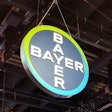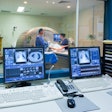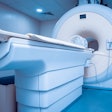The U.S. Food and Drug Administration (FDA) today asked that manufacturers of gadolinium-based MRI contrast agents include a "black box" warning on their product labeling.
The warning would state that "patients with severe kidney insufficiency who receive gadolinium-based agents are at risk for developing a debilitating, and a potentially fatal disease known as nephrogenic systemic fibrosis (NSF)," according to an FDA news release. The warning would also state that patients just before or just after liver transplant procedures, or patients with chronic liver disease, are also at risk of developing NSF if they are experiencing kidney insufficiency of any severity.
The FDA's action comes after reports have begun surfacing of patients who received gadolinium-based MRI contrast subsequently developing NSF -- a progressive and potentially fatal disease that in some cases appears as thickened skin so rigid it can be difficult for patients to bend their joints, and in some cases may result in broken bones. The condition can include fibrosis of the skeletal muscle, bone, lungs, pleura, pericardium, myocardium, kidneys, muscle, bone, testes, and dura.
The FDA issued a health advisory regarding a possible connection between gadolinium and NSF in June 2006 after reports of two dozen cases developed in European patients following gadolinium administration. Since then, researchers have been investigating the possible link between gadolinium and NSF, with some studies focusing on whether a class effect is involved or whether the cases are attributable to specific formulations of gadolinium.
In the advisory, the FDA said that NSF had developed after single and multiple administrations of gadolinium. The reports on NSF reactions have not always mentioned a specific agent, but the agency said that the most commonly reported agent was Omniscan (gadodiamide, GE Healthcare, Chalfont St. Giles, U.K.). The next most reported agents were Magnevist (gadopentetate DTPA, Berlex, Montville, NJ), and OptiMark (gadoversetamide, Mallinckrodt, Hazelwood, MO).
The FDA recommends that patients should be screened for kidney problems prior to receiving gadolinium contrast. "The recommended dose should not be exceeded and enough time should elapse to ensure that a dose has been eliminated from the body before the agent is used again," the FDA news release stated.
At least one lawsuit has been filed in connection with the controversy. In March, a Cleveland man who claims he developed NSF from an injection of gadolinium contrast filed a lawsuit against Mallinckrodt and its parent companies, Tyco Healthcare Group and Tyco International of Pembroke, Bermuda.
By Brian Casey
AuntMinnie.com staff writer
May 23, 2007
Gadolinium: A 'necessary factor' in the development of NSF? March 27, 2007
Tyco hit with lawsuit over gadolinium reaction, March 19, 2007
Health Canada issues gadolinium advisory, March 15, 2007
Scottish study shows potential gadolinium-NSF link, March 9, 2007
Gadolinium-based contrast may cause nephrogenic systemic fibrosis, March 6, 2007
Copyright © 2007 AuntMinnie.com

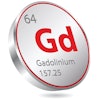
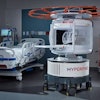
.fFmgij6Hin.png?auto=compress%2Cformat&fit=crop&h=100&q=70&w=100)



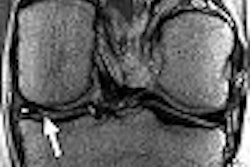
.fFmgij6Hin.png?auto=compress%2Cformat&fit=crop&h=167&q=70&w=250)








